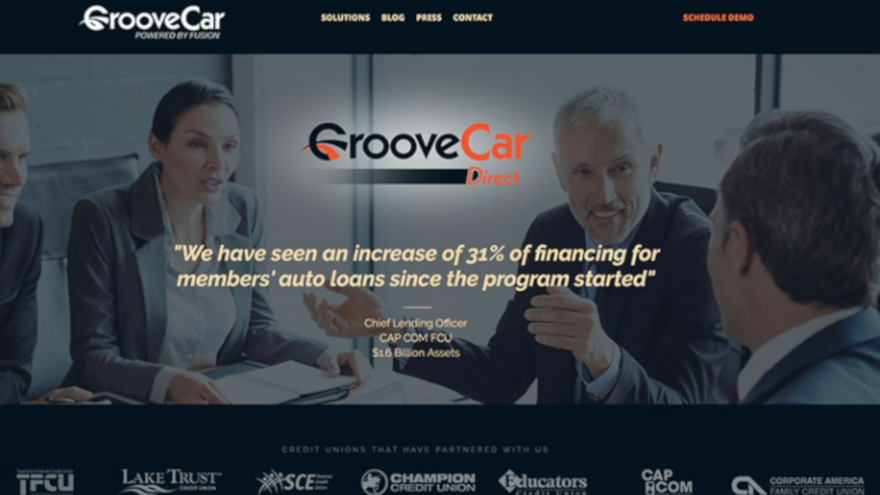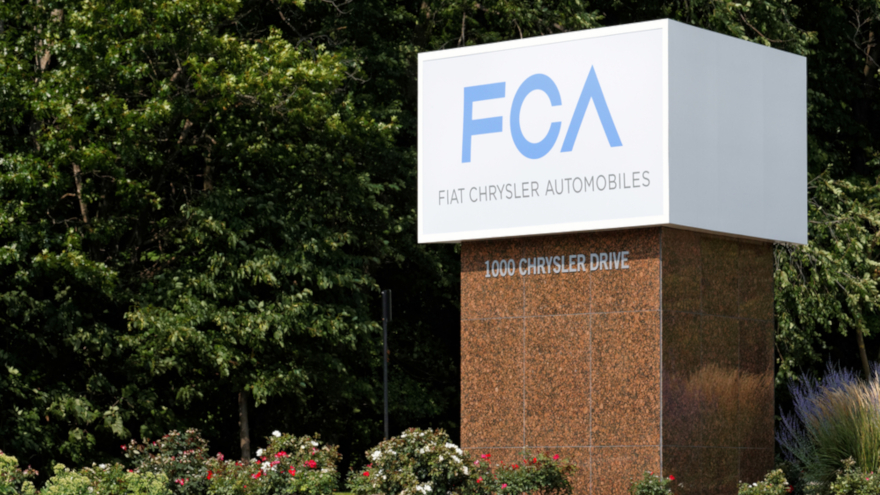AUL Corp. president and chief executive officer Jimmy Atkinson continued to bolster the company’s top management team.
The administrator of vehicle service contracts recently appointed David Chang to the position of chief financial officer. Chang, who brings more than 20 years of experience in corporate finance, has been recruited to prepare the firm for its next phase of growth.
The appointment represents the second addition to AUL’s executive team so far this year, following the appointment of new chief information officer Jose Fleites.
“As we continue to grow, it is vital that we take advantage of opportunities to enhance the strength and expertise of our leadership team, and David brings a depth of knowledge and experience to elevate our financial processes, systems, forecasting and reporting to an institutional level,” Atkinson said.
Most recently, Chang was vice president of financial planning and analysis for Assurant, a global provider of risk management solutions focusing on the housing and lifestyle markets – including extended service contracts and vehicle protection. There, Chang drove financial planning, forecasting, reporting and analysis for a $3 billion gross premium business segment.
Prior to Assurant, Chang spent nearly 20 years with General Electric, culminating in the position of chief financial officer for a $300 million P&L with six facilities spanning three continents. Further, he was responsible for driving margin expansion initiatives, supply chain performance, inventory turns, planning/forecasting accuracy, cash generation, expense management, capital planning and controllership.
“In addition to his immense professional qualifications, David’s genuine concern and compassion for his fellow workers demonstrate what a great fit he is for AUL. We welcome him with great excitement and enthusiasm,” Atkinson said.
The auto financing process certainly has evolved significantly for the days of paper faxes, but Equifax emphasized that pre-approvals and credit checks remain a critical component of the automotive shopping process.
Equifax unveiled additional analysis in its ongoing study of consumer credit and shopping trends with the goal of gaining a better understanding of how credit is used by a variety of consumers, as well as better understanding consumer buying power.
According to its latest findings, Equifax found prospective purchasers view credit checks and pre-approval processes differently depending on where they are in the buying process.
The findings reveal that 52 percent of prospective purchasers have undergone a credit check, while just 15 percent have the intention of getting pre-approval on their desired vehicle. Even more interesting, nearly a third (32 percent) said they do not plan to seek pre-approval during the shopping process.
Equifax maintains that clearly, dealers and auto finance companies can play a larger role in helping or encouraging more pre-approvals, which may create a less adversarial environment when it comes to negotiation as well as a more expedited shopping process.
Equifax added that another way to foster this environment is through encouraging more shoppers to create online profiles during the research phase of shopping.
“After reviewing these trends more closely, it is clear that there are additional ways dealers and financiers can help their clients move from prospective purchase to completed transaction,” said Rebecca Kritzman, senior director of automotive marketing at Equifax.
“Encouraging the creation of profiles that lead to more customized searches, securing more pre-approvals on credit and offering consultation on buying power can all lead to a higher transaction rate in a less adversarial manner, which can translate to longer satisfied customer relationships in the future.”
Consumers are constantly looking for value when shopping for a vehicle and creating an online profile through a dealer’s online portal helps.
According to the study, approximately 35 percent of consumers who did not create a profile ended up spending more than they expected on their vehicle, compared to 29 percent who said they spent less than what they expected.
Equifax explained online profiles and customized search processes can help consumers navigate to better options that suit their specific needs, helping to build trust with dealers.
Buying power consultation is a critical component in helping consumers complete the auto shopping process.
The study showed men (37 percent) and women (39 percent) who recently completed a purchase said they received consultation on their buying power either before or during the shopping process. This compares to just a quarter of prospective purchasers overall who said they received consultation.
Platinum Auto Finance recently made a series of strategic moves, including an expansion in markets near its base in Florida while closing one of its facilities in North Carolina.
The expansion portion of the subprime auto finance company’s strategy involves increasing its sales presence in key markets in Florida and expanding its customer service team significantly.
As part of the strategic initiative, Platinum Auto Finance shared that it is evaluating its dealer relationships outside the state of Florida, too. The company added that it expects changes to its dealer partners based on the historical success of the relationship and the prospects for continued success going forward.
At this point in the credit cycle, Platinum’s ownership group and senior management said it recognizes the impressive accomplishments of other companies in subprime auto finance space, especially with regard to expense ratio improvements and technology implementation.
“The company believes that becoming increasingly efficient through technology and scale combined with increased utilization of data analytics will further boost Platinum’s profitability and attractiveness for the long-term,” officials said.
The company went on to mention Platinum’s ownership group is actively increasing its financial commitment to the business, and its strategic plan will continue to drive balance sheet strength.
“In turn, this strengthens our position going forward as well as further solidifies our relationship with our senior lender, First Tennessee Bank,” officials added.
Meanwhile, Platinum Auto Finance said part of the expansion in Florida involves the closing of the company’s regional center in Charlotte, N.C.
“We wish our dedicated and hard-working staff in Charlotte the best in the future and thank them for all of their efforts on the Company’s behalf,” Platinum senior vice president David Knightly said.
“It is imperative that we consolidate our structure both from a cost and efficiency perspective,” Knightly continued. “It also gives us the opportunity to improve our culture and message to our team members here in our main office.”
ChannelNet announced a strategic partnership this week with White Clarke Group to offer an end-to-end financing solution to the global asset finance market.
The partnership offers asset finance companies an integrated customer and dealer-facing platform that can automate the overall management of the customer relationship for finance companies and their dealers, serving the automotive, truck and heavy equipment markets.
“ChannelNet is the recognized leader in delivering scalable marketing, sales and retention platforms,” said David Slider, group executive vice president of White Clarke Group. “Working together, we are transforming digital lending so our global clients can lower operating costs, improve business processes and increase revenue.”
Using ChannelNet’s SiteBuilder software platform, White Clarke Group can offer a comprehensive digital marketing solution to new and existing clients worldwide. The platform includes a branded customer self-service account management portal designed to make it more convenient for finance company customers to manage their retail installment contracts and leases.
Additional features include:
• Time-saving online credit applications so customers are pre-approved before visiting the showroom
• Secure dealer portals with wholesale system information for lenders available at the push of a button
• Customer lifecycle management systems designed to share relevant information on the ownership experience with finance and dealers
“We are delighted to be working with the team at White Clarke Group to offer asset lenders and dealers a cost-effective solution that will drive engagement, retention and commerce,” ChannelNet chief executive officer Paula Tompkins said.
“Our combined approach benefits retail, fleet and wholesale buyers by accelerating the financing process at the dealership. At the same time, we are streamlining the process for lenders to help them drive new revenue more efficiently.”
A project that took roughly six months came to fruition in an attempt to help credit unions fill their auto finance portfolios.
This week, GrooveCar launched its new corporate website designed to deliver a greater level of engagement for its credit union partners as they seek the latest expertise on auto finance growth.
“It’s important to create a place for our credit union partners to gain more knowledge on the services available for increasing auto loans in the digital space. This has been an exciting time of growth, and our new corporate site reflects this,” said Robert O’Hara, director of business development at GrooveCar.
The company indicated the plan to redesign the corporate site began in December as management thought it was time to refresh the site to demonstrate GrooveCar’s evolving business strategies for credit unions.
“The goal of the new site as a way to enhance our ability to reach credit union partners. We wanted to utilize the latest marketing technologies to engage visitors. We placed emphasis on video as a medium to deliver our brand message,” O’Hara said.
“Video content in marketing continues to outperform other mediums. This is a component of marketing that is emphasized in marketing plans developed for credit unions, it only made sense to make it part of the focus for the new website,” he continued.
“As a tool, video delivers strong visitor attention, more so than any other medium, resulting in a pleasing and easy to follow message,” O’Hara went on to say.
GrooveCar highlighted that visitors will also notice a simplified design. The company acknowledged the previous site had become cluttered. Its goal was to eliminate this situation and provide a more streamlined experience.
The company pointed out the site is broken down into easy-to-understand pages and categories, getting visitors directly to their destination of interest.
Redesigning the corporate website was important for GrooveCar to tell its story by simplifying the message and creating value with the user.
“It’s not about GrooveCar; it’s about how GrooveCar can help your credit union,” O’Hara said.
Additional survey results from Protective Asset Protection could provide information that F&I managers are seeking as part of their pitch to vehicle buyers about service contracts and other ancillary products.
The provider of F&I programs, services and dealer-owned warranty programs recently announced results of the second part of its recent survey addressing consumer and dealer trends in vehicle service contracts and ancillary protection plans.
According to the survey, 42 percent of respondents estimate their protection plan has saved them an average of $1,000 to $2,000 in savings on repairs or parts replacements.
The results showed that vehicle service contracts and ancillary products show great value for drivers, especially on specific aspects of a vehicle. The top areas most likely covered under a vehicle service contract include:
— Steering: 47.2 percent
— Technology feature service: 44.4 percent
— Brakes: 44.4 percent
— Electrical components: 41.7 percent
— Drive axels: 41.7 percent
Officials noted areas such as transmission and suspension repairs (27.8 percent) showed the smallest responses from drivers using protection plans.
More than half of those surveyed (51 percent) said they have purchased a protection plan for their vehicle. And of those opting for a vehicle service contract, more than half (53 percent) said they have needed to use their benefits on their current vehicle.
The majority of respondents (34 percent) said they currently drive a small CUV/SUV for their vehicle. Most said they’ve used their benefits on general repairs (58 percent), while another 22 percent said they’ve used benefits on parts replacements.
Regarding ancillary protection programs, 69.4 percent said they’ve needed to have repairs on tires and wheels, 58.3 percent said windshield repairs and 47.2 percent said exterior appearance products such as paintless dent removal.
Respondents said they’ve needed to use ancillary benefits due to road hazard repairs (39 percent), accidents (17 percent) and parts replacement (11 percent).
“Vehicle service contracts can be extremely valuable to drivers, especially since there are so many reasons out of the driver’s control that cause them to go into effect,” said Rick Kurtz, senior vice president of distribution at Protective Asset Protection.
“With high-performance tires more sensitive to road hazards, and increasingly complex vehicle technology, there are a bevy of reasons why extra protection can equate to thousands in savings over the life of a vehicle,” Kurtz continued.
“And for a dealer, these F&I products offer help with shrinking margins, as well as improved customer satisfaction,” he went on to say. “We find these benefits to dealer and car-buyer are amplified when the dealer can brand them as their own, with more control over the administration of the protection programs.”
The first part of the survey results from Protective Asset Protection can be found here.
When GWC Warranty announced several additions to its sales leadership team, the provider of used-vehicle service contracts sold through dealers didn’t go with “green peas” to fill these positions.
This week, GWC Warranty highlighted that five newly created regional sales manager (RSM) positions were created to enhance an already robust sales team by adding more than 100 years of combined experience in sales and the automotive industry.
Brian Francis, who was hired as a business development specialist last July, was promoted to GWC’s Midwest RSM position, overseeing GWC’s sales team in Michigan, Ohio, Pennsylvania and the surrounding Midwest states. Francis’ career spans more than 20 years in various positions with dealerships and F&I product providers.
Chancler Encalade joins GWC as the RSM for the company’s South-Central region, overseeing a team in Colorado, Illinois, Indiana, Louisiana, Oklahoma, Texas and other territories in the central United States. A University of New Orleans graduate, Encalade has spent nearly 25 years working in leadership positions at large dealerships and national lenders like Capital One and HSBC.
Scott Lugger, GWC’s new RSM for the Western region, manages a team in Arizona, California, Nevada, Oregon, Washington and additional territories in the western United States. Lugger graduated from the University of Oregon prior to spending more than two decades in the automotive industry, including stints with Chrysler Financial and Wells Fargo Dealer Services.
Charlie Maybin becomes the RSM for GWC’s Northeast region, inheriting a team from Delaware, Maryland, New England, New York and Pennsylvania. Maybin most recently spent six years with Gateway One Lending & Finance, following a successful career in pharmaceutical and automotive sales. He is a graduate of Kean University.
Mark Whatley has been hired as the RSM for GWC’s Southeast region, which covers much of the Southeastern United States, including Florida, Georgia, North Carolina, South Carolina Tennessee and Virginia. Whatley graduated from the University of Arkansas at Little Rock prior to nearly two decades in the automotive finance field.
“The GWC Warranty sales team is an integral part of maintaining successful partnerships with dealerships across the United States,” said GWC Warranty chief executive officer and president Rob Glander.
“In adding such experienced and talented sales professionals to our sales leadership team, we are confident our dealer partners will be the direct beneficiaries of an even greater level of strategic service aimed at helping them improve their businesses with a best-in-class vehicle service contract offering,” Glander went on to say.
Nicholas Financial has a new chief financial officer.
According to a recent announcement, Kelly Malson will become the subprime auto finance company’s CFO effective on or before June 15. Malson will replace Chad Steinorth, who rejoined the institution on March 1 as vice president and interim CFO.
Before coming aboard at Nicholas, Malson was appointed as a director of Conn’s, a furniture and home electronics retailer. That appointment came in August 2012, and she became chair of the retailer’s audit committee in November 2012.
Malson served as Conn’s audit committee chair until its 2018 annual meeting held on May 30. Malson was also appointed to Conn’s nominating and corporate governance committee in December 2015.
Earlier in her career, Malson served as senior vice president, CFO and treasurer from May 2009 until stepping down from those positions in December 2013 at World Acceptance Corp., one of the largest small-loan consumer finance companies, operating 1,334 offices in 15 states and Mexico. She remained employed by World Acceptance from December 2013 until her retirement in February 2014.
Prior to that, she held the titles of VP and CFO from March 2006 until May 2009 and VP of internal audit from September 2005 to March 2006 at World Acceptance.
Malson also served as finance compliance manager from 2004 to 2005 for ITRON, which enables utilities and cities to safely, securely and reliably deliver critical infrastructure services to communities in more than 100 countries.
Prior to 2004, Malson served in various positions with KPMG and Arthur Andersen.
“We are extremely pleased and excited to announce Kelly Malson as our CFO,” said Doug Marohn, president and chief executive officer of Nicholas Financial.
“Ms. Malson has an extensive and impressive career overall, but her experience serving as CFO and director of public companies, including a company in the consumer credit space, make her a particularly valuable addition to our executive management team,” Marohn continued.
According to confirmation from Fiat Chrysler Automobiles on Friday, how FCA dealers can finance inventory and their retail sales is going to change.
The automaker announced it intends to establish a captive financial services arm to provide U.S. consumers with more options to finance vehicle purchases while supporting the company’s sales volumes and bolstering its earnings.
The currently does not have a captive finance company within its portfolio, even though Chrysler Capital exists. Established more than five years ago, Chrysler Capital is part of Santander Consumer USA.
More than 2.1 million new cars and trucks were sold by FCA in the U.S. last year. FCA said it currently is the only major automaker in the U.S. without a captive financing arm.
“Given our strong financial performance and improving credit profile, we believe the time is right to pursue a U.S. Finco strategy,” FCA chief executive officer Sergio Marchionne said.
“FCA will have adequate capital to fund the equity needed and expects to have the credit rating to make the Finco funding competitive,” Marchionne continued
Chrysler Capital , along with a variety of other providers including Ally Financial, currently underwrites consumer financing for most FCA vehicle purchases in the U.S.
FCA said is exploring whether to acquire an existing financial services business, which could include exercising an option to acquire Chrysler Capital, or to build its own Finco.
Exploratory discussions with Santander regarding Chrysler Capital have begun, according to the company.
It’s taken five years, but federal officials are seeing an improvement if consumers faced a financial emergency roughly equal to one payment on their vehicle installment contract.
The Federal Reserve Board’s latest Report on the economic well-being of U.S. households indicated four in 10 adults, if faced with an unexpected expense of $400, would either not be able to cover it or would cover it by selling something or borrowing money. Officials pointed out this level is an improvement from half of adults in 2013 being ill-prepared for such an expense.
The report released this week goes on to mention that economic well-being has generally improved over the past five years. The project noted that 74 percent of adults reported they were doing at least OK financially in 2017 — up 10 percentage points from the first survey in 2013.
Even so, officials acknowledged notable differences remain across race, ethnicity, education groups and locations, and many individuals still struggle to repay college loans, handle small emergency expenses and manage retirement savings.
The report derived from the Fed’s fifth annual Survey of Household Economics and Decision-making (SHED) and examined the economic well-being and financial lives of Americans and their families. During November and December 2017, more than 12,000 people participated in the survey. They described their experiences on a wide range of topics, including income, employment, unexpected expenses, banking and credit, housing, education and retirement planning.
Among the new topics covered in this year’s report is the relationship between the opioid epidemic and local economic conditions, which could certainly impact whether a contract holder stays current or falls into delinquency.
The Fed discovered one in five adults personally knows someone who has been addicted to opioids, and those who do have somewhat less favorable assessments of economic conditions. Still, more than half of adults exposed to opioid addiction say that their local economy is good or excellent, suggesting a role for factors beyond economic conditions in understanding the crisis.
“This year’s survey finds that rising levels of employment are translating into improved financial conditions for many but not all Americans, with one third now reporting they are living comfortably and another 40 percent reporting they are doing ok financially,” said Federal Reserve Board Governor Lael Brainard. “Even with the improvement in financial outlook, however, 40 percent still say they cannot cover a $400 emergency expense, or would do so by borrowing or selling something.
“We learned that about one in five adults knows someone with addiction to opioids or painkillers; whites are about twice as likely to have such exposure as blacks and Hispanics; and exposure does not vary much by education level or by local economic conditions,” Brainard continued.
The Board’s SHED data looked at how individuals are managing their finances and making decisions vital to their financial lives and futures. Alongside the economic gains observed since the Great Recession, this report also noted challenges faced by people who are trying to piece together multiple jobs or who are struggling to establish emergency savings.
Among the report’s other key findings:
— Individuals of all education levels, races and ethnicities have shared in the economic expansion over the past five years, although reported well-being remains lower for racial and ethnic minorities and those with less educational attainment.
— Most workers are satisfied with the wages and benefits from their current job and are optimistic about their future job opportunities. Even so, challenges including irregular job scheduling remain. One in six workers have irregular work schedules that they did not request, and one in ten receive their work schedule less than a week in advance.
— Many adults are struggling to save for retirement, and less than two-fifths believe that they are on track with their savings. While preparedness for retirement increases with age, concerns about inadequate savings are still common for those nearing retirement.
The entire report can be downloaded here.












